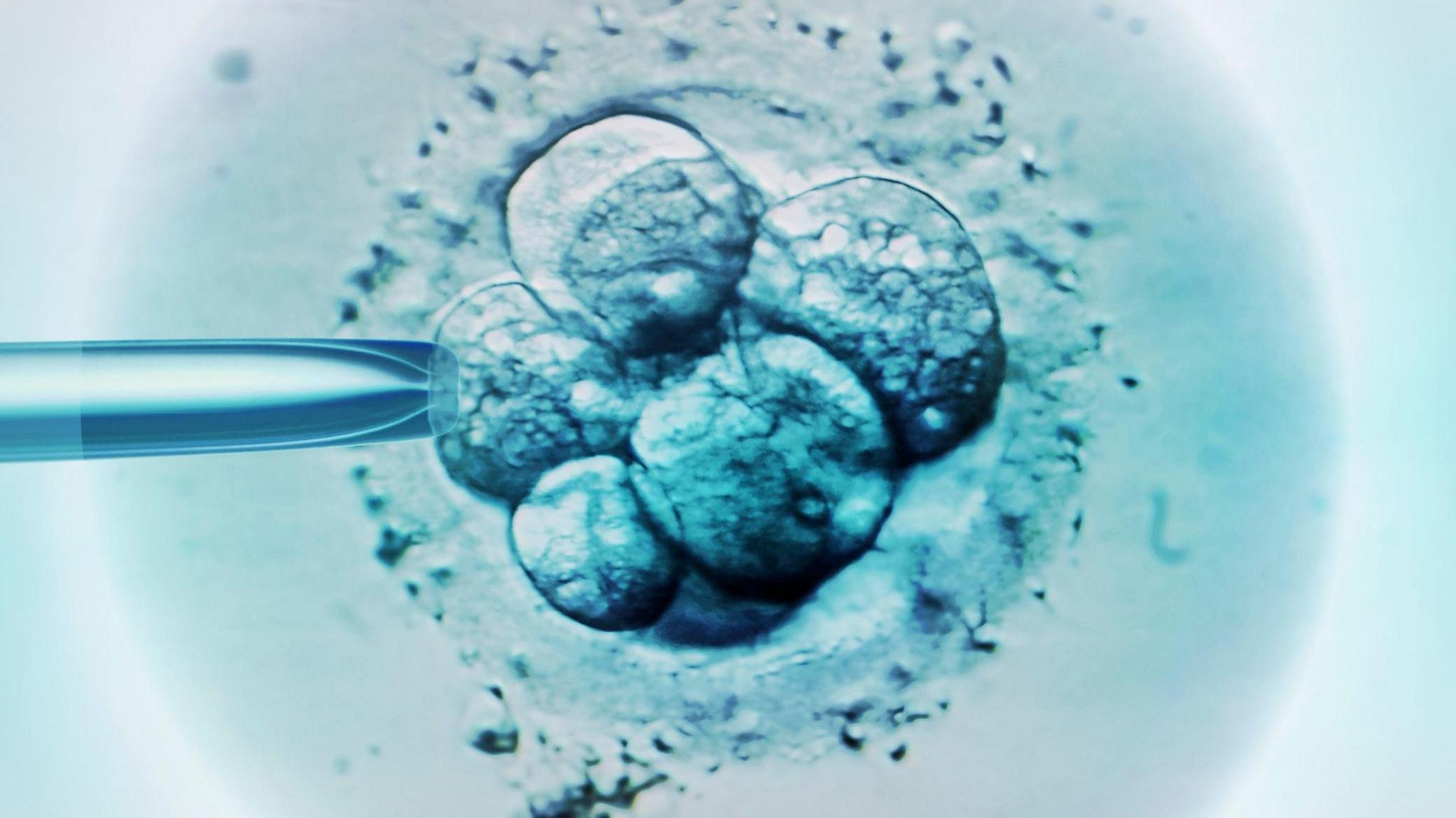Fertility rate in England and Wales drops to new low
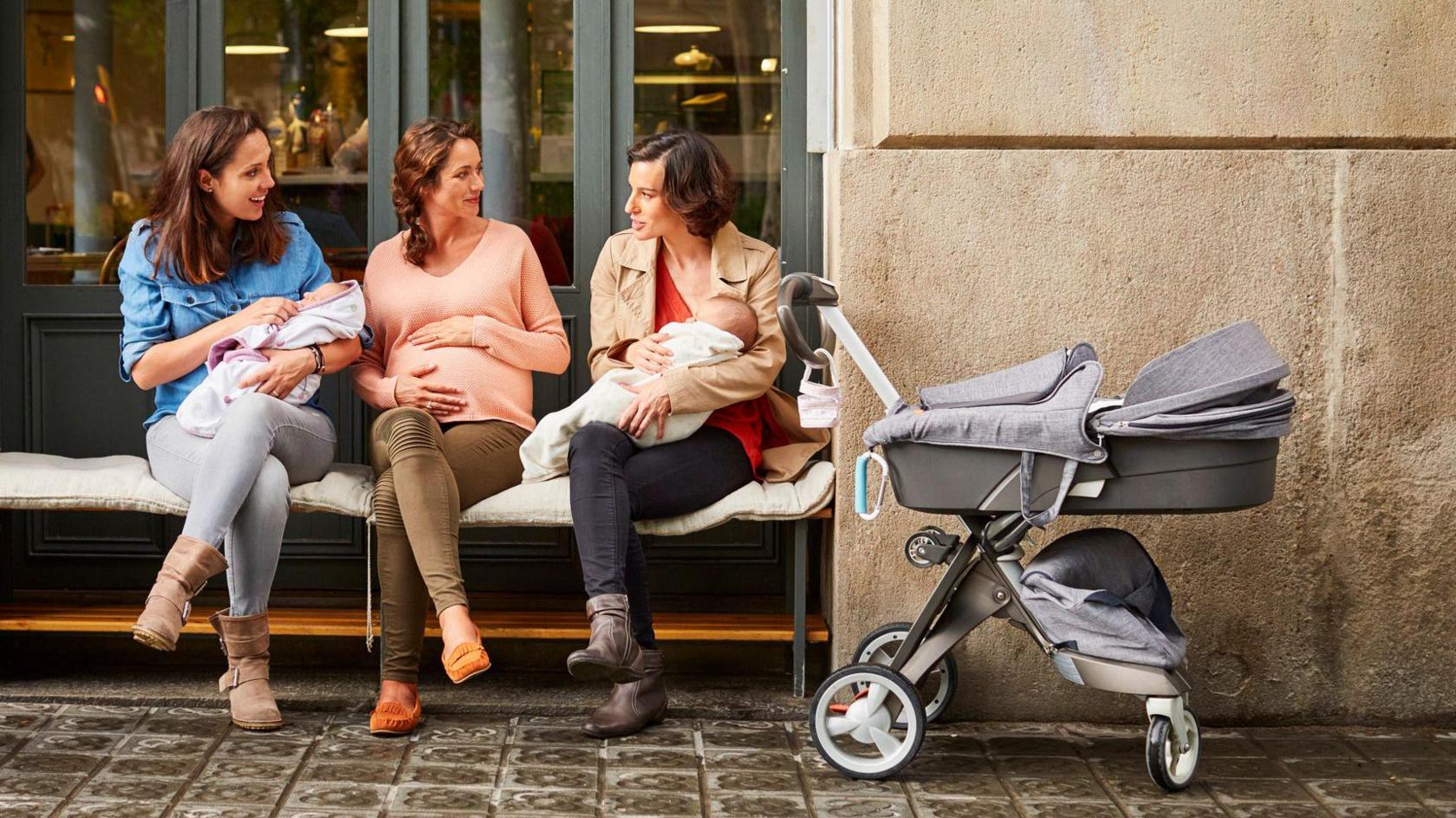
Just over 591,000 babies were born in the UK last year - the lowest number in four decades
- Published
Women in England and Wales had an average of 1.44 children between 2022 and 2023, the lowest rate on record.
Only 591,072 babies were born in 2023, fewer than in any year since 1977 and a fall of more than 14,000 on the previous year, figures from the Office for National Statistics, external showed.
The average age of new mums and dads has increased to 33.8 for fathers and 30.9 for mothers.
Research suggests, external millennials, born up to the mid-1990s, are not having children because of financial pressures, not feeling ready or having not found the right partner.
While the number of births fell to a record low last year, the number of women of child-bearing age was at its highest ever at 12 million.
This meant the total fertility rate in 2023 was the lowest recorded since 1938.
Greg Ceely, head of population health monitoring at the ONS, said total fertility rates had been declining since 2010 but was particularly notable in some age groups.
"The decline in fertility rates has been the most dramatic in the 20-24 and 25-29 age groups,” he said.
For countries to maintain their populations, the fertility rate needs to be around 2.1 children per woman.
But despite a declining fertility rate in England and Wales since the 1970s, the population has continued to grow, largely because of immigration.
In most countries around the world, fertility rates are falling.
In Scotland, the total fertility rate also fell to 1.3, and the number of babies born was also down to the lowest ever figure of 45,935, according to the National Records of Scotland, external.
There were 27,374 live births in Wales in 2023 and 563,561 in England.
'Cost-of-living pressures'
A recent study, external from University College London (UCL) found that only one in four 32-year-olds in England who want children are actively trying to have them.
When researchers looked at the reasons for why, financial and work pressures were often cited for those born in 1989-90.
UCL's Dr Alina Pelikh said the falling fertility rate highlighted the challenges faced by younger generations.
“While parents will naturally have many reasons for deciding on the timing and spacing of their children, it is likely that current cost-of-living pressures, with rising housing and childcare expenses, are also shaping the environment in which this group is making fertility decisions.”
Katie, 38, from Wolverhampton, said she previously wanted three children, but being a step parent had changed her opinion due to “the stress” of parenthood.
“I’m just happy doing what I'm doing as a child-free woman… not having to be tied to anything,” she said.
This included being able to go on holidays during term time and having more disposable income.
But while she said she thought more women were actively choosing not to have children, with society “shifting ever so slightly”, she added that the choice was “still a taboo”.
“When I mention to people I don’t want children, the first question I’m asked is ‘why’,” she said.
Experts say the government could introduce some policies to help.
"The government could implement immediate interventions... such as offering longer paid parental leave, more funding for childcare for working parents and more funding for fertility treatments in the NHS,” said Prof Bassel H. Al Wattar, from Anglia Ruskin University.
But policies to encourage people to have more children, such as loans or tax incentives, "are not only expensive but have limited evidence they will raise the overall fertility rate", said Melinda Mills, a professor of demography and population health at the University of Oxford.
The most popular date for giving birth in 2023 was 28 September, which has been among the top 10 most popular birth dates for several years.
Boxing Day is the day babies are least likely to be born on in England and Wales. It's held that title for 11 years in a row.
Get in touch
Are you affected by issues covered in this story? Share your experiences.
- Published20 May 2024
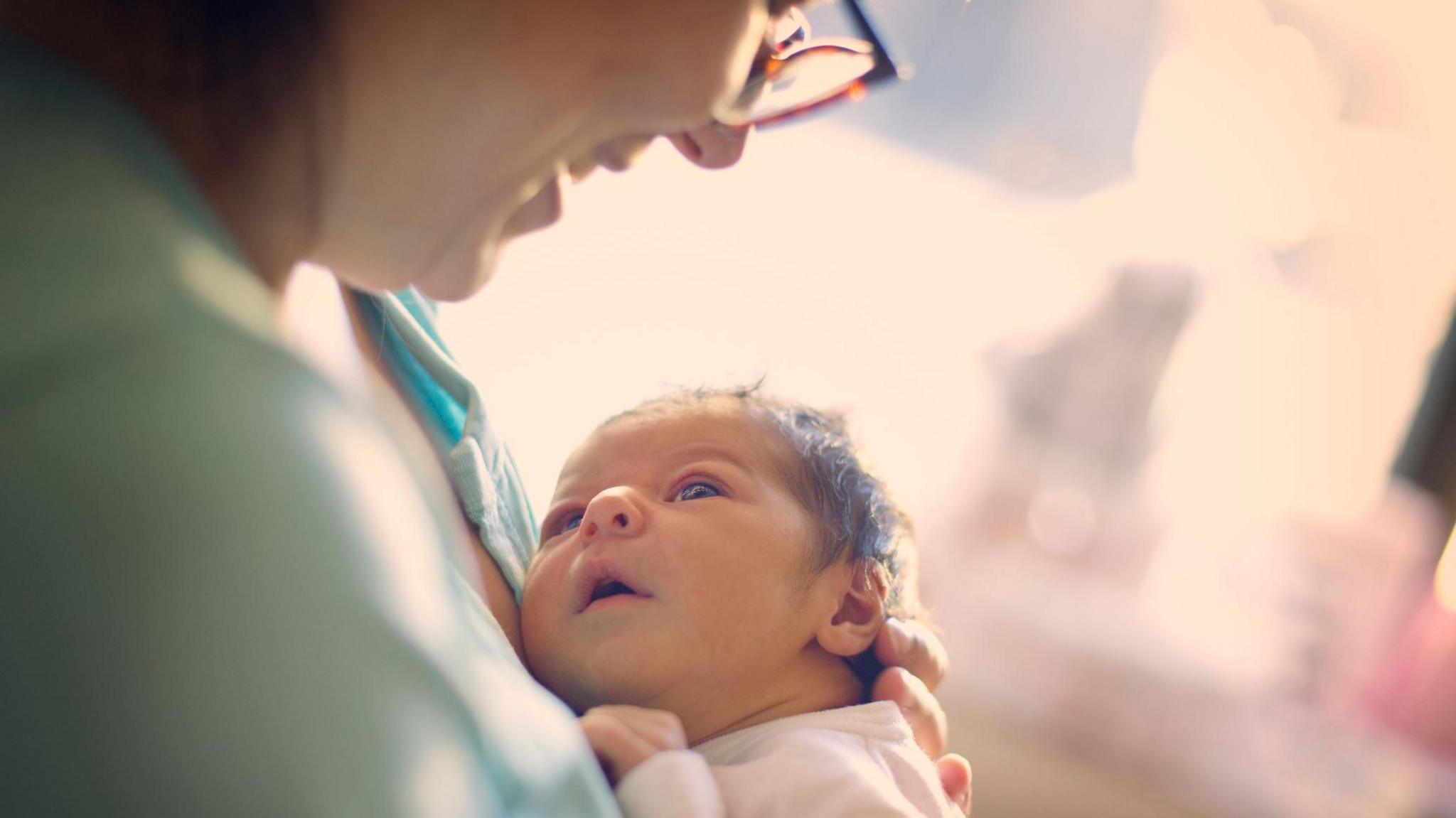
- Published24 July 2024
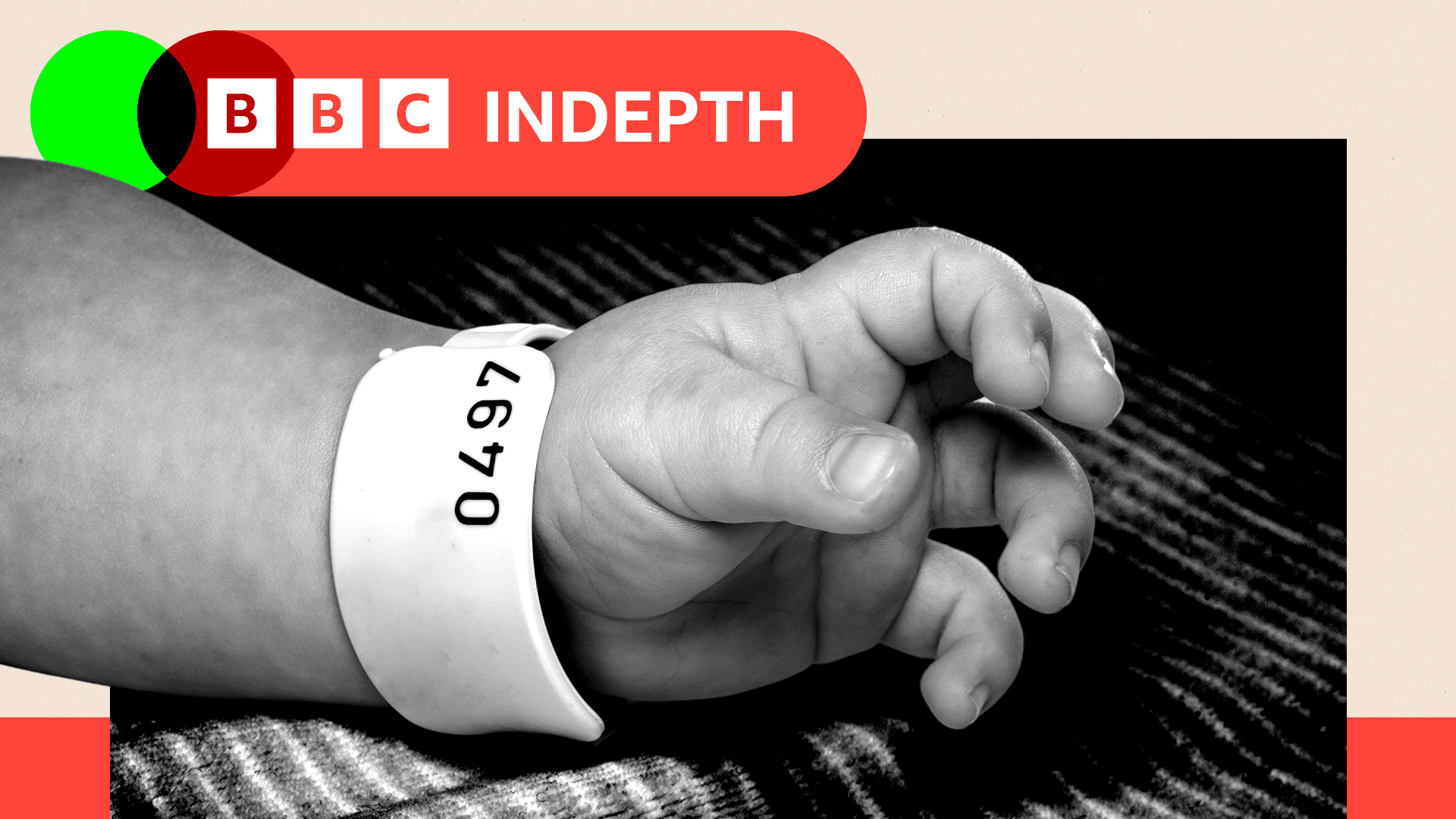
- Published16 May 2023
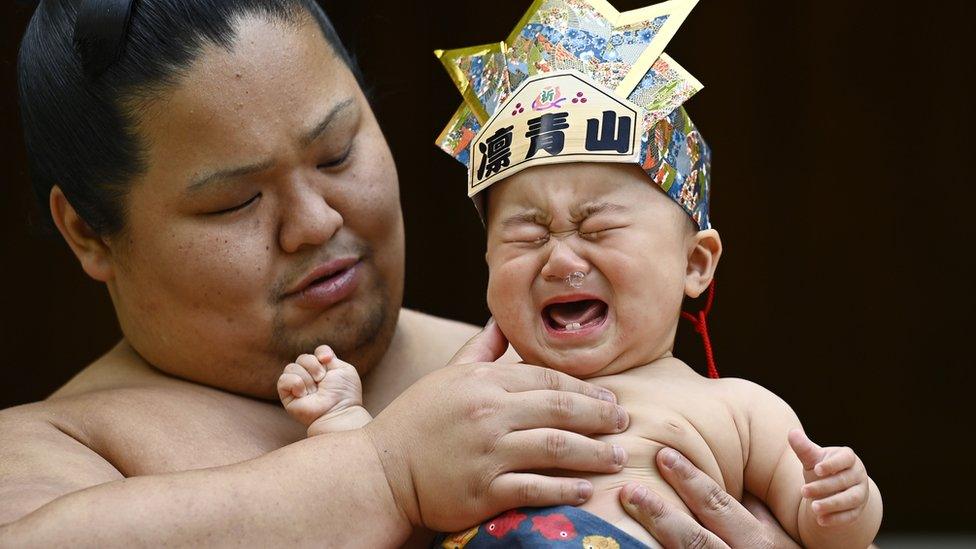
- Published18 July 2024
